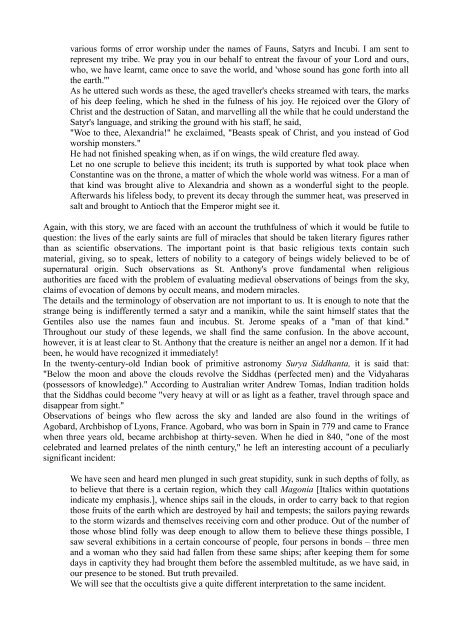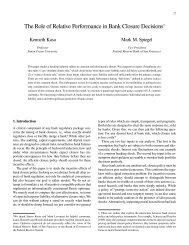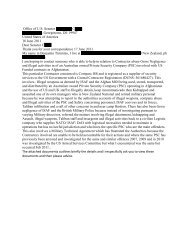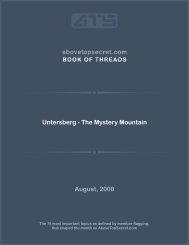seventeenth and eighteenth centuries. For instance, in May1606, fireballs were continuouslyreported over Kyoto, and one night a whirling ball <strong>of</strong> fire resembling a red wheel hovered near theNijo Castle and was observed by many <strong>of</strong> the samurai. The next morning the city was filled withrumors and the people again muttered: "This must be a portent."Beginning one noon in September 1702, the sun took on a bloody color several days in successionand cotton-like threads fell down, apparently falling from the sun itself – phenomena reminiscent <strong>of</strong>the 1917 "miraculous" observations in Fatima, Portugal.Chaos spread all over Japan on January 2, 1749, when three round objects "like the moon" appearedand were seen for four days. Such a state <strong>of</strong> social unrest developed, and seemed so clearly linkedwith the mysterious "celestial objects," that the government decided to act. Riot participants wereexecuted. But confusion became total when people observed three "moons" aligned in the sky and,several days later, two "suns."Undoubtedly, the Japanese may have experienced some natural phenomena similar to mirages andincorrectly interpreted them in the context <strong>of</strong> social rebellion. From this distance, however, it isimpossible to separate the reliable observations from the emotional interpretation. What mattershere is the link between certain unusual phenomena – observed or imagined – and the witnesses'behavior. These accounts show that it is possible to affect the lives <strong>of</strong> many people by showingthem displays that are beyond their comprehension.A brief examination <strong>of</strong> legendary elements in Western Europe in the Middle Ages will show that asimilar rumor about strange flying objects and supernatural manifestations was spreading there.Indeed, Pierre Boaistuau, in 1575, remarked:The face <strong>of</strong> heaven has been so <strong>of</strong>ten disfigured by bearded, hairy comets, torches, flames,columns, spears, shields, dragons, duplicate moons, suns, and other similar things, that ifone wanted to tell in an ordenly fashion those that have happened since the birth <strong>of</strong> JesusChrist only, and inquire about the causes <strong>of</strong> their origin, the lifetime <strong>of</strong> a single man wouldnot be enough.According to the 1594 edition <strong>of</strong> the same book, this is what happened a few miles from Tübingen,Germany, on December 5, 1577, at 7:00 A.M.:About the sun many dark clouds appeared, such as we are wont to see during great storms:and soon afterward have come from the sun other clouds, all fiery and bloody, and others,yellow as saffron. Out <strong>of</strong> these clouds have come forth reverberations resembling large, talland wide hats, and the earth showed itself yellow and bloody, and seemed to be covered withhats, tall and wide, which appeared in various colors such as red, blue, green, and most <strong>of</strong>them black.Especially interesting to us will be the fact that these reports <strong>of</strong> celestial objects are linked withclaims <strong>of</strong> contact with strange creatures, a situation parallel to that <strong>of</strong> modern-day UFO landings.Since these rumors have been puzzling to many authorities in the Roman Catholic Church, perhapsit is appropriate to begin with a quotation from the life <strong>of</strong> St. Anthony, the Egyptian-born founder <strong>of</strong>Christian monasticism who lived about 30 A.D. In the desert, St. Anthony met with a strange being<strong>of</strong> small stature, who fled after a brief conversation with him:Before long in a small rocky valley shut in on all sides he sees a manikin with hooded snout,horned forehead, and extremities like goat's feet. When he saw this, Anthony like a goodsoldier seized the shield <strong>of</strong> faith and the helmet <strong>of</strong> hope: the creature none the less began to<strong>of</strong>fer him the fruit <strong>of</strong> the palm tree to support him on his journey and as it were pledges <strong>of</strong>peace. Anthony perceiving this stopped and asked who he was. The answer he recieved fromhim was this:"I am a mortal being and one <strong>of</strong> the inhabitants <strong>of</strong> the Desert whom the Gentiles deluded by
various forms <strong>of</strong> error worship under the names <strong>of</strong> Fauns, Satyrs and Incubi. I am sent torepresent my tribe. We pray you in our behalf to entreat the favour <strong>of</strong> your Lord and ours,who, we have learnt, came once to save the world, and 'whose sound has gone forth into allthe earth.'"As he uttered such words as these, the aged traveller's cheeks streamed with tears, the marks<strong>of</strong> his deep feeling, which he shed in the fulness <strong>of</strong> his joy. He rejoiced over the Glory <strong>of</strong>Christ and the destruction <strong>of</strong> Satan, and marvelling all the while that he could understand theSatyr's language, and striking the ground with his staff, he said,"Woe to thee, Alexandria!" he exclaimed, "Beasts speak <strong>of</strong> Christ, and you instead <strong>of</strong> Godworship monsters."He had not finished speaking when, as if on wings, the wild creature fled away.Let no one scruple to believe this incident; its truth is supported by what took place whenConstantine was on the throne, a matter <strong>of</strong> which the whole world was witness. For a man <strong>of</strong>that kind was brought alive to Alexandria and shown as a wonderful sight to the people.Afterwards his lifeless body, to prevent its decay through the summer heat, was preserved insalt and brought to Antioch that the Emperor might see it.Again, with this story, we are faced with an account the truthfulness <strong>of</strong> which it would be futile toquestion: the lives <strong>of</strong> the early saints are full <strong>of</strong> miracles that should be taken literary figures ratherthan as scientific observations. The important point is that basic religious texts contain suchmaterial, giving, so to speak, letters <strong>of</strong> nobility to a category <strong>of</strong> beings widely believed to be <strong>of</strong>supernatural origin. Such observations as St. Anthony's prove fundamental when religiousauthorities are faced with the problem <strong>of</strong> evaluating medieval observations <strong>of</strong> beings from the sky,claims <strong>of</strong> evocation <strong>of</strong> demons by occult means, and modern miracles.The details and the terminology <strong>of</strong> observation are not important to us. It is enough to note that thestrange being is indifferently termed a satyr and a manikin, while the saint himself states that theGentiles also use the names faun and incubus. St. Jerome speaks <strong>of</strong> a "man <strong>of</strong> that kind."Throughout our study <strong>of</strong> these legends, we shall find the same confusion. In the above account,however, it is at least clear to St. Anthony that the creature is neither an angel nor a demon. If it hadbeen, he would have recognized it immediately!In the twenty-century-old Indian book <strong>of</strong> primitive astronomy Surya Siddhanta, it is said that:"Below the moon and above the clouds revolve the Siddhas (perfected men) and the Vidyaharas(possessors <strong>of</strong> knowledge)." According to Australian writer Andrew Tomas, Indian tradition holdsthat the Siddhas could become "very heavy at will or as light as a feather, travel through space anddisappear from sight."Observations <strong>of</strong> beings who flew across the sky and landed are also found in the writings <strong>of</strong>Agobard, Archbishop <strong>of</strong> Lyons, France. Agobard, who was born in Spain in 779 and came to Francewhen three years old, became archbishop at thirty-seven. When he died in 840, "one <strong>of</strong> the mostcelebrated and learned prelates <strong>of</strong> the ninth century," he left an interesting account <strong>of</strong> a peculiarlysignificant incident:We have seen and heard men plunged in such great stupidity, sunk in such depths <strong>of</strong> folly, asto believe that there is a certain region, which they call Magonia [Italics within quotationsindicate my emphasis.], whence ships sail in the clouds, in order to carry back to that regionthose fruits <strong>of</strong> the earth which are destroyed by hail and tempests; the sailors paying rewardsto the storm wizards and themselves receiving corn and other produce. Out <strong>of</strong> the number <strong>of</strong>those whose blind folly was deep enough to allow them to believe these things possible, Isaw several exhibitions in a certain concourse <strong>of</strong> people, four persons in bonds – three menand a woman who they said had fallen from these same ships; after keeping them for somedays in captivity they had brought them before the assembled multitude, as we have said, inour presence to be stoned. But truth prevailed.We will see that the occultists give a quite different interpretation to the same incident.
- Page 3 and 4: Foreword by Whitley StrieberThere a
- Page 5 and 6: It is sad that, as the twentieth ce
- Page 7 and 8: PART ONE: THE ALIEN CHRONICLESIn th
- Page 9 and 10: lot about it, but nobody said 'Let'
- Page 11: The resemblance of the Dogu statues
- Page 16 and 17: them. These apparitions are scarce,
- Page 18 and 19: was again shot at. Another creature
- Page 20 and 21: The story is fantastic. Yet it remi
- Page 22 and 23: their virginity in the sanctuaries
- Page 24 and 25: A letter from a British woman begin
- Page 26 and 27: The recollections of the legionnair
- Page 28 and 29: lades. In less time than it takes t
- Page 30 and 31: e called Smith said: "No, we cannot
- Page 32 and 33: Celtic legends, along with the docu
- Page 34 and 35: probably took place in the second p
- Page 36 and 37: Australian Air Force Intelligence p
- Page 38 and 39: ings in the fields and prairies?One
- Page 40 and 41: From behind the object, two beings
- Page 42 and 43: "in smooth English." They did not s
- Page 44 and 45: to four feet tall, dressed in white
- Page 46 and 47: expectations as if they were mere t
- Page 48 and 49: came out of it, but this person was
- Page 50 and 51: 6. When men did not inhabit most of
- Page 52 and 53: the negative reactions of scientist
- Page 54 and 55: other in appearance, dress, mode of
- Page 56 and 57: saw that they had made a grin, he h
- Page 58 and 59: and rode out after dark in search o
- Page 60 and 61: sighting, and the Sonny Desvergers
- Page 62 and 63:
PART TWO: ANOTHER REALITYDuring the
- Page 64 and 65:
pencil in a buttonhole with a piece
- Page 66 and 67:
short perpendicular line on each en
- Page 68 and 69:
sudden displacement of warm air or
- Page 70 and 71:
popular today. But a second - and e
- Page 72 and 73:
ecorded about 1825 in the Vale of N
- Page 74 and 75:
The ikal of the Tzotzils flies thro
- Page 76 and 77:
the door, he turned and recieved a
- Page 78 and 79:
If Stewart came back today, he woul
- Page 80 and 81:
The devil does not have a body. The
- Page 82 and 83:
interested in the social implicatio
- Page 84 and 85:
Very well, little son. Come back to
- Page 86 and 87:
measure. But the phenomenon does ap
- Page 88 and 89:
and physical, to determine whether
- Page 90 and 91:
previous year. But the fact remains
- Page 92 and 93:
Do Not Report This!Accounts such as
- Page 94 and 95:
least one occasion, experienced lev
- Page 96 and 97:
deep unconscious level of the symbo
- Page 98 and 99:
much as twenty hours a day, and in
- Page 100 and 101:
against me as I stood bracing mysel
- Page 102 and 103:
another one, but this was very defi
- Page 104 and 105:
not natural, was witnessed by perso
- Page 106 and 107:
The predicted miracle took place as
- Page 108 and 109:
The phenomenon, it seems, could not
- Page 110 and 111:
in the final analysis.Many of us wi
- Page 112 and 113:
already surrounded....I was told wh
- Page 114 and 115:
Since the publication of my earlier
- Page 116 and 117:
”A bright flash”Fatima, May 13,
- Page 118 and 119:
The Invisible CollegeAfter some thi
- Page 120 and 121:
the Air Force met in Dallas and dis
- Page 122 and 123:
panel of scientists could rapidly b
- Page 124 and 125:
it had been hovering there was now
- Page 126 and 127:
like piezo-electricity, or static e
- Page 128 and 129:
the group teachings and advice. The
- Page 130 and 131:
This is a frightening view, one tha
- Page 132 and 133:
John McCoy, who coauthored with Wil
- Page 134 and 135:
of reports about "the robots" and "
- Page 136 and 137:
eathe our air. They walked normally
- Page 138 and 139:
the designation Wolf 424.The myster
- Page 140 and 141:
a scar or a mark. The authorities w
- Page 142 and 143:
esearches might have a bearing on a
- Page 144 and 145:
me undeniable) and as psychic devic
- Page 146 and 147:
extraterrestrial theory is not stra
- Page 148 and 149:
the universe summarizes the problem
- Page 150 and 151:
About the AuthorAn astrophysicist b
















